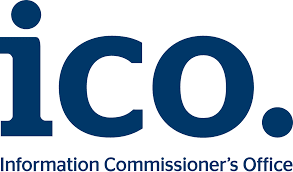Is job search competition holding you back?
What’s holding you back in your executive job search? Tough competition for jobs? A lack of suitable vacancies? These concerns rank amongst the most common obstacles faced in securing a new position – according to senior executives interviewed in a recent study:
“A huge shortage of jobs means there is high competition when a role becomes available.”
“There aren’t many roles and too much competition; I reckon 80% of Finance Directors are moving at the moment.”
[pullquote]63% of candidates are competing for 30% of all senior level jobs
[/pullquote]Is it fair to say the reason your executive job search is less than successful is because of the market itself? Well, our coaches & outplacement specialists and others say, no actually.
Recruiters argue that too many candidates are dependent upon advertised jobs. According to many recruiters, part of the problem is that candidates expect positions to present themselves, often in the form of advertised posts.
Statistics support this view. Only 37% of candidates think their next role will come from the unadvertised jobs market. In reality, over 70% of senior executive positions can be found in this ‘hidden’ jobs market.
That’s 63% of candidates competing for 30% of all senior level jobs.
Candidates are simply unaware of available opportunities. Most do not understand the importance of the hidden jobs market and they certainly don’t know how to navigate it.
What is the hidden jobs market?
The hidden jobs market is a term used to describe unadvertised jobs. These roles are filled before they get to the open market, often by word of mouth and through various contacts. We’re talking a massive portion of the senior level jobs market here.
If you’re wondering why so many jobs are unadvertised, look at it from a recruiter’s perspective:
- new technologies have made it significantly less costly to directly approach a shortlist of desirable candidates without ever posting a job vacancy
- companies are often directly approached by outstanding candidates who do understand how to access the hidden jobs market
- hiring managers often find the most suitable candidates are those who have worked for the company, or are introduced through personal referrals
Given the choice, most employers prefer to fill positions without advertising. It saves money and time. Therefore, it follows that more roles will be filled in this way, but can you access these hidden opportunities?
You’ve probably heard that the hidden jobs market is an area “only trained professionals can navigate” or that “without [some career management company]’s network of recruiters and headhunters and their access to unadvertised roles you will struggle to crack it”. However, (and this is my soapbox moment!) this sales pitch is merely a justification for charging you bloated fees. Whilst I feel proud to be part of the career management industry, some of the potential pitfalls and sales tactics used in certain areas frustrate me; I’m saddened by some of the stories I hear from clients who have previously been taken in by these sales tactics and had an unsatisfactory experience with another career management company.
So don’t be put off by some of the hype that you might hear in some areas of the career management industry regarding the hidden jobs market. Yes, the hidden jobs market can be difficult for many people outside the recruitment industry to navigate but I emphasise, it is entirely possible. And with 70-80% of senior executive jobs found within this unadvertised jobs market, it’s vital you spend time learning how this is achieved.
How can you access the hidden jobs market?
[pullquote]You can be amongst the 37% of candidates who are accessing 70% of senior level jobs[/pullquote]
When senior level candidates are asked ‘what would help you in your search for a new role?’ their top answer is usually insider tips on how to find unadvertised roles and access the hidden jobs market.
Well, that involves a combination of job search strategies that I couldn’t possibly cover in one article. However, I will tell you what the most important job search skill you can develop is and then I’ll point you in the direction of a report we’ve written to help senior executives access this hidden jobs market.
The #1 key to accessing unadvertised jobs is, of course… networking. Taking the time to build relationships with peers, recruiters, headhunters and other key players in your industry can have surprising results. These people will often know where the next job vacancy will arise (particularly the executive recruiters and headhunters who are placing the current post holders in their new roles); they can introduce you to relevant contacts; advise you on company culture; and provide valuable support and guidance in your job search – all whilst building your reputation and raising your profile. The more you become known as an expert in your industry, the more likely you’ll receive a call from a headhunter with an unmissable opportunity.
Show recruiters that you’re up-to-date and ‘tech savvy’ through utilising online networking tools such as LinkedIn and further extend your networks by asking your contacts “who else should I be talking to?” which will then lead to new introductions. Always remember the networking rule of thumb: give value to receive value. You should aim to continue this process of networking throughout your whole career, whether you are engaged in an active job search or not.
(For those of you who are less inclined to put yourself out there, headhunter Andrew Ellis shares his excellent networking advice specifically for introverted professionals here).
So, there you have it: you can continue competing for the smallest slice of the pie – the advertised jobs – or you can make a change in your job search strategy and enter the hidden jobs market, where you’ll have to work that little bit harder to unearth new roles, but you’ll have less competition.
Be amongst the 37% of candidates who are accessing 70% of senior level job roles…
Click here to download our report ‘Navigating the Hidden Jobs Market’ and you’ll learn 3 key ways to make the hidden jobs market work for you.











